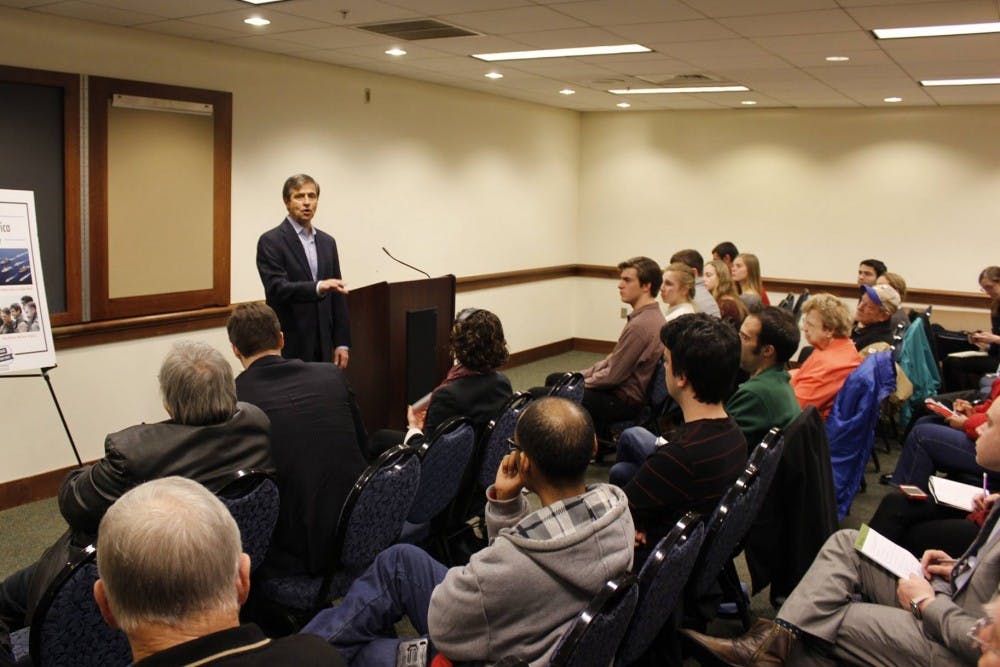“Know the last step before you take the first step,” Admiral Joe Sestak said of military intervention during his foreign policy talk in Irvine Auditorium.
The former admiral and congressman — who announced his 2016 Democratic Senate campaign at Penn — returned to campus on Tuesday to discuss the tenets of his foreign policy plan.
He launched his bid for Senate last summer by walking 422 miles across Pennsylvania.
The 30-year Navy veteran and former Pennsylvania congressman is the highest-ranking military official ever elected to Congress. His foreign policy experience was also informed by his position as the director for defense on the National Security Council under President Bill Clinton.
Sestak called for diplomatic relations that secure peace without forcing structure on foreign powers.
“Militaries can stop a problem, but they can’t fix it,” he said. He added, “Where’s our leadership as the honest broker? That should be our strategy.”
Sestak’s campaign advocates for diplomacy not only between nations, but also across party lines. He mentioned his close friendship with Republican Chuck Hagel during his time in Congress as an example of bipartisan kinship.
While he praised President Obama’s diplomacy in the Iran nuclear deal, he stressed the importance of avoiding another “tragic misadventure like Iraq.”
"Very few knew the difference between a Sunni and a Shiite when we went into Iraq. Nobody thought about securing the peace," he said.
He specifically cited the loss of $3 trillion during the Iraq war as wasteful.
“That tragedy has harmed our national security,” he said.
The event was organized by the group Penn for Sestak. College junior Sam Kaplan founded the organization this year after reaching out to the campaign over the summer. Kaplan was enthused by Sestak’s promise to bring accountability back to government and restore trust in Congress.
College sophomore Bianca Donadio, a member of Penn for Sestak, said that she first heard of Sestak through another student at Penn. She supports Sestak because of his firm grasp on issues and his practical plan to “move towards quality in our military and Navy, and not necessarily quantity,” she said.
Sestak mentioned the role of education, instead of militarization, as a foreign policy tool. Improving literacy rates in places like Afghanistan, where 98 percent of women are illiterate, would help stabilize those places so, “we don’t have to keep going back,” he said. In Congress, he was a proponent of education transfer programs.
“Education is our homeland defense,” he added.
The greatest foreign policy threat college students should concern themselves with as they begin their political lives is nuclear proliferation, Sestak said. He cited the threat of North Korea developing and selling nuclear weapons to other hostile nations.
Five of Sestak’s six sisters went to Penn and he recently spoke at Penn in October.
“I come back every year,” he said of the University. “I love it. It’s like a mecca in West Philly.”
Correction: The article has been updated to reflect that Sestak said "Very few knew the difference between a Sunni and a Shiite when we went into Iraq. Nobody thought about securing the peace," not "Very few U.S. soldiers knew the difference between the Sunni and the Shiite. They were not concerned with securing the peace." The DP regrets the error.









